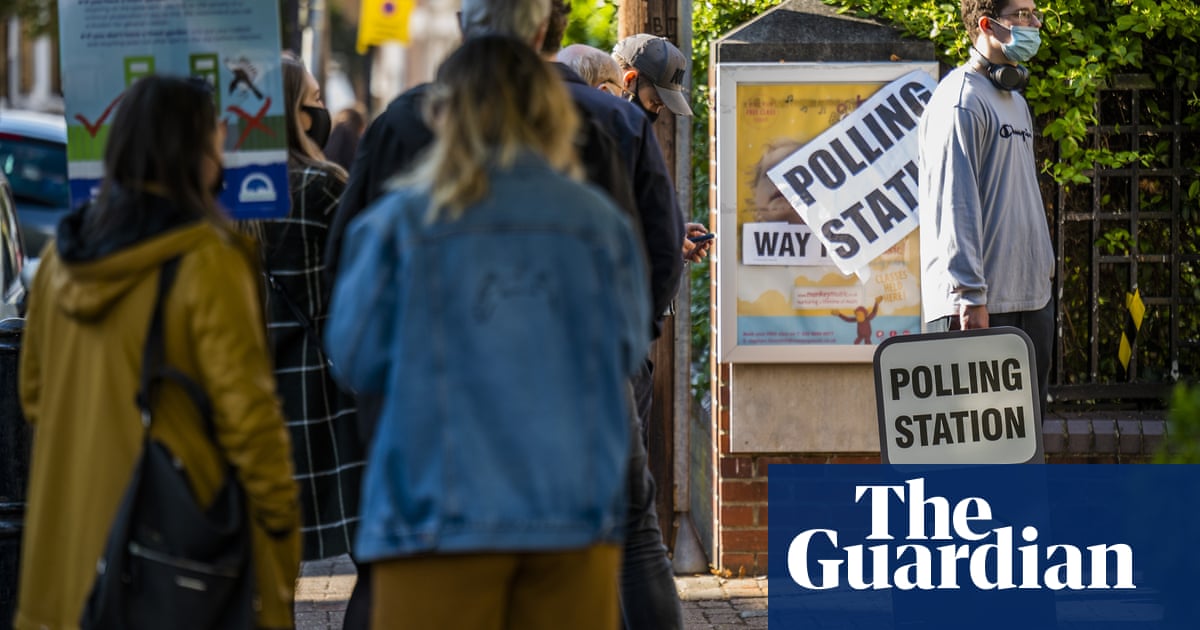
Rachel sleeps in a chair when she can’t get into bed. She used to have a team of care workers to help her move, cook and clean, but as government cuts came in throughout the 2010s they have all been axed. Elli walks with a cane, but since her care hours have been halved she trips more than she should. Once, she fell on her bathroom floor and waited five hours for help to come. Pete used to have full-time carers that enabled him to live at home, including someone to help him use equipment to swallow his food, but this got cut a few years back. Afraid of choking to death, he reluctantly agreed to sell his flat and move into a care home.
These are just a few of the people I have spoken to over the past decade as I’ve investigated the human impact of the social care crisis for the Guardian and my book, Crippled. Each case is deeply shocking, but what might surprise you just as much is their age. All are in their 30s or early 40s: millennials less concerned about avocado and more about whether they can get out of bed in the morning.
Read coverage of the social care system in recent years and you’d be forgiven for thinking it was all about elderly people. Politicians talk of dignity “at the end of our lives”. Newspapers use stock images of wrinkly hands and grey hair. Just look at how the recent proposal to raise working-age taxes to fund social care was framed as the young having to pay for the old, as if young people need never rely on the system. In fact, more than a third of all social care users in England are of working age, while younger people with learning or physical disabilities make up more than half of all spending in the sector.
I hope that Hen Night – a new BBC short drama inspired by Crippled – will go some way to challenging these misconceptions. When the writer and director, Vici Wreford-Sinnott, and I first discussed ideas for a show about government disability cuts, we were deliberate in the sort of story we wanted to tell and who should tell it. Hen Night’s central character, Jessica, is a typical twentysomething: she has a job she loves as a teacher, mates she drinks wine with, and a fiance she’s about to marry. She also has a disability that means she uses personal assistants to help her live her fulfilling life. When coronavirus hits, Jessica is told that owing to budgetary constraints on her local council, on top of staff shortages, her care hours will be pulled.
I would like to say that this is entirely fictional, but nothing that happens to Jessica hasn’t happened for real. The programme is set during the pandemic, as lockdowns have seen even more working-age disabled people lose the care hours they rely on, while others are languishing on “waiting lists” for months. For an insight into how bad things have got, a poll by the Care and Support Alliance (CSA) found that one in seven care users actually required hospital treatment during the pandemic because of a lack of social care.
Social care is often framed as serving basic needs: say, helping someone to stay safe, or wash their hair. Talking about such things is important, not least because in the current climate hundreds of thousands of disabled people aren’t even having these most personal dignities met. But as Hen Night shows, social care is about so much more than getting to the toilet. It’s about having choices. It’s independence. It’s the chance to have a life, just like anyone else.
And perhaps that’s part of the problem. Cultural prejudice around disability means it is still too often assumed that disabled people do not actually “have a life, just like anyone else”: that they don’t have careers, relationships, interests or children. This has a practical knock-on effect. If voters don’t believe disabled people have jobs or do the school run, there’s no problem in cash-strapped councils giving them 9am “get-up” slots. If politicians think disabled people don’t go on dates or see friends in the pub, there’s no need to fund “social” hours as well as personal care.
To be without your social care in retirement is horrendous, but there is something particularly cruel about this being done to young people. These are people’s lives that have only just started, lives whose “best years” are being wasted. No one would say this was acceptable for non-disabled young people.
Coronavirus lockdowns have rightly seen much concern over young people missing out on going to the pub or the office, but the reality is that disabled young people have been expected to live like this, and worse, for years with very little fuss.
The arts have long been a powerful window into the social ills of the day. While newspaper headlines can be ignored as the page is turned, television allows us to root for a character we’ve only just met. I hope Hen Night goes some small way to bringing the social care scandal into viewers’ living rooms, and helps open up the conversation to finally include all ages. For all the real-life Jessicas out there.
Frances Ryan is a Guardian columnist. Hen Night is available on BBC iPlayer from 2 September. It is part of the BBC’s Culture in Quarantine












